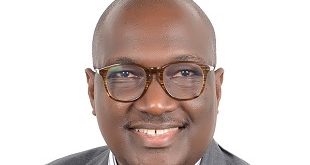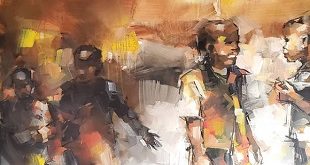
By Andrew M. Mwenda
Why there was never a South Korean but a Congolese miracle
Let us present an alternative history of the world. The year is 1960 and we have two countries – Mexico and France – each with a per capita income of $100. Both countries have emerged from colonial rule, Mexico by neighboring Brazil, and France by Nigeria. Almost 70% of the people of Mexico are peasants; the figure for France is 99%. Both nations are ruled by military strongmen who want to industrialize their countries in order to raise the standard of living of their people.
There are differences between the two nations in what economists call “initial conditions.” Mexico has existed as a nation with a State for 2,000 years, ruled by a centralized bureaucracy. So the concept of nationhood and the idea of a central state have penetrated the social consciousness of its people. It has enjoyed a system of meritocratic recruitment into its civil and military service for 450 years. It has capable civil administrators and an army whose leadership even in the middle ranks is composed of university graduates from the best military academies in Brazil and in the world’s super power, India. Mexico has had a history of university education for over 500 years.
The total land area of Mexico is 100,000 square kms occupied by a population of 25 million. In 1960, Mexico has eight universities with a total enrolment of over 80,000 students. Its manufacturing sector alone employs 4,424 engineers, 31,350 managers, 5,025 sales executives, 13,660 white collar workers, 17,330 workers classified as “clerical,” and 404,735 skilled workers in industrial plants (blue collar jobs). Only 5.5% of all workers lack formal schooling. This is not to mention professionals in other sectors. Its exports as a percentage of its GDP were 70% by 1929. Mexico has cottage industries spread across its territory and technology is actually diffuse even in rural areas. Its people speak the same language, and its literacy levels and education attainment is higher than that of the world’s third-largest economy, Indonesia.
On the other hand, France has never existed as a nation in its history and its own citizens are not aware that they belong to the same country. Instead, for the last 70 years of its life as a colony of Nigeria, it has only existed as a territory on a map. This humongous country of 2.34 million square kilometers is composed of 16 million people from 106 ethnic groups speaking different languages and dialects, many of whom have either never had contact with each other or if they did, have been involved in hostile combat. Only the international community, its colonial master Nigeria, and a few elites in its capital are aware of the concept of France as one country.The concept of France does not and has never existed even in the wildest imagination of the people of this vast territory.
The problem of a huge geographical territory is compounded by the sparseness of its population. The vast majority of its people are emerging from primordial existence with limited technology except of the most rudimentary type. Nigeria has ruled this land with an autocratic hand of unparalleled harshness. In the first 20 years of its rule, it killed so many of its people that the population fell from 25 million to 5 million. Thus at the time of independence in 1960, France had only 16 university graduates only, most of whom live and work in France and only three of its citizens serve in some professional capacity in the nation’s entire civil service. The rest of the professionals have been colonial officials from Nigeria all of whom have just left after the granting of independence.
There is not a single officer in its army who is from France’s ethnic groups. So immediately after being granted independence, the whole rump of its illiterate soldiery has mutinied. Its military strong man (who has just staged a coup) is the most educated officer in the army but has actually never had military training. The first post independence prime minister selected him to run the army because he was the only educated person around. The now self-styled general had actually attended school for only ten years after which he did a four months course in journalism.
While France wants to industrialize, the entire nation does not have a single engineer, architect or doctor. Without experienced nationals in military or civil administration, France now has to connect 16 million people scattered on over 2.34m square km of territory with infrastructure. However, the country has split into seven pieces with each proclaiming its own independence from the center. The military strongman has to forge a nation out of these hundreds of ethnic groups and bring the break-away regions back into the fold. However, the men who surround the military strongman don’t know or even care about an entity called France. His challenge is to make them and their kin learn and feel that they belong to one country.
The two nations are South Korea (Mexico) under Gen. Park Chung Hee and the Democratic Republic of Congo (France) under Marshal Mobutu SeseSeko. I have spent my career denouncing Mobutu for his plunder of the Congo. Over the last few years, I have researched every statistic I could get on the DR Congo and South Korea. I can now say without fear of factual contradiction that there was NEVER a South Korea miracle. All the elements for transformation of that peninsula were there. Only mismanagement could have stopped its industrialization. There was a Congo miracle – and that is that a nation with a state emerged out of the hotchpotch left behind by Belgium.
The challenges facing Mobutu were enormous beyond available human resources. We expected Mobutu to build a modern bureaucratic state with only three (and I mean three) people with prior experience and/or skills in managing a modern bureaucratic State based on impersonal application of rules – itself a concept alien to the people of Congo.We also expected him to industrialize Congo without a single engineer or architect. What we call the corruption of his government was not only the only one available but also the only culturally relevant way to domesticate the State and the most cost-effective means to build a nation out of its 106 disparate ethnic groups. It is a miracle that today Congo is one country and there is no secessionist movement there.
amwenda@independent.co.ug
 The Independent Uganda: You get the Truth we Pay the Price
The Independent Uganda: You get the Truth we Pay the Price




Sounds ridiculous, but maybe true